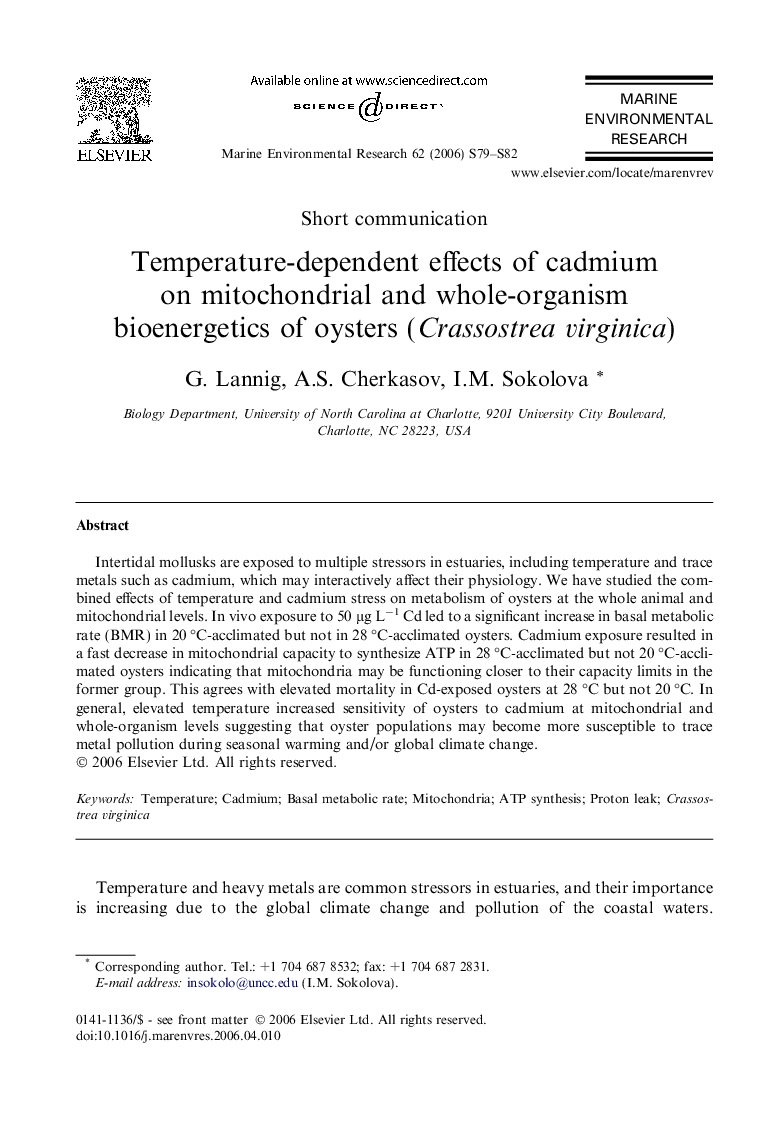| Article ID | Journal | Published Year | Pages | File Type |
|---|---|---|---|---|
| 4551728 | Marine Environmental Research | 2006 | 4 Pages |
Intertidal mollusks are exposed to multiple stressors in estuaries, including temperature and trace metals such as cadmium, which may interactively affect their physiology. We have studied the combined effects of temperature and cadmium stress on metabolism of oysters at the whole animal and mitochondrial levels. In vivo exposure to 50 μg L−1 Cd led to a significant increase in basal metabolic rate (BMR) in 20 °C-acclimated but not in 28 °C-acclimated oysters. Cadmium exposure resulted in a fast decrease in mitochondrial capacity to synthesize ATP in 28 °C-acclimated but not 20 °C-acclimated oysters indicating that mitochondria may be functioning closer to their capacity limits in the former group. This agrees with elevated mortality in Cd-exposed oysters at 28 °C but not 20 °C. In general, elevated temperature increased sensitivity of oysters to cadmium at mitochondrial and whole-organism levels suggesting that oyster populations may become more susceptible to trace metal pollution during seasonal warming and/or global climate change.
